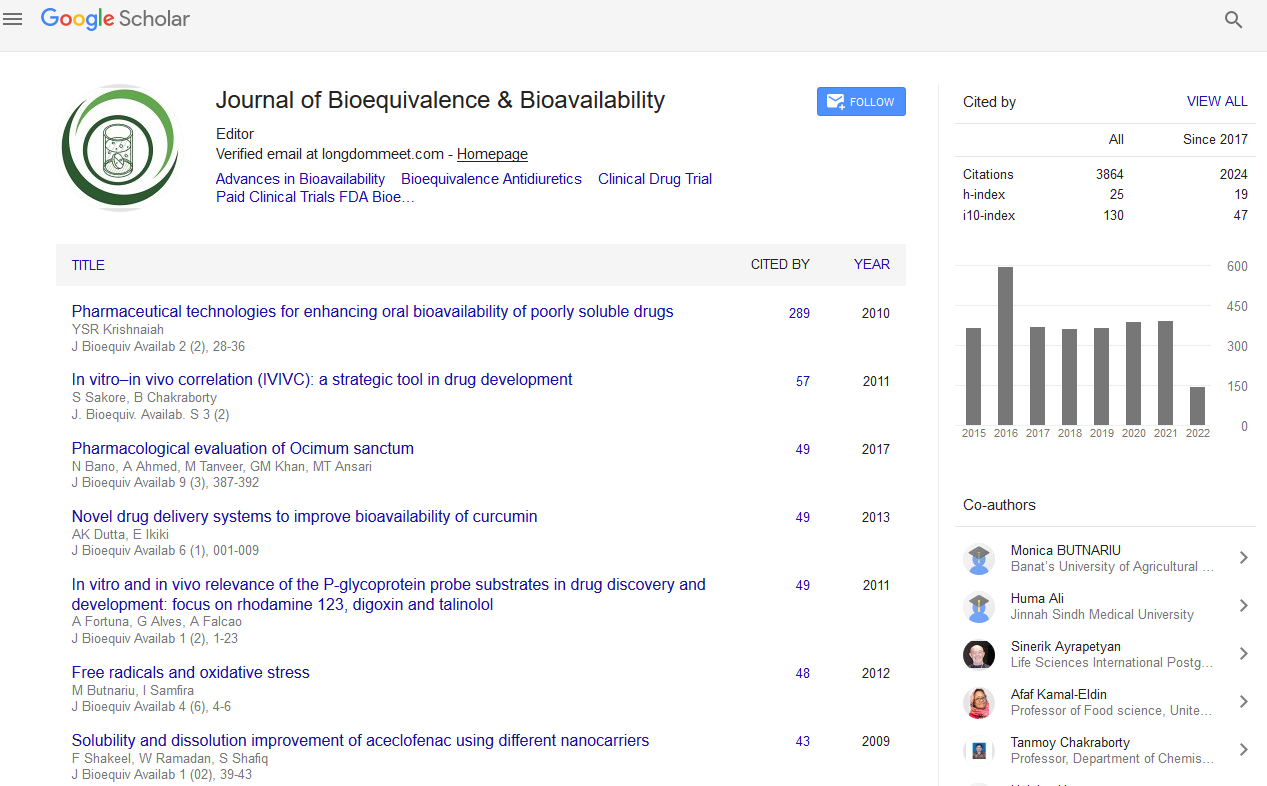PMC/PubMed Indexed Articles
Indexed In
- Academic Journals Database
- Open J Gate
- Genamics JournalSeek
- Academic Keys
- JournalTOCs
- China National Knowledge Infrastructure (CNKI)
- CiteFactor
- Scimago
- Ulrich's Periodicals Directory
- Electronic Journals Library
- RefSeek
- Hamdard University
- EBSCO A-Z
- OCLC- WorldCat
- SWB online catalog
- Virtual Library of Biology (vifabio)
- Publons
- MIAR
- University Grants Commission
- Geneva Foundation for Medical Education and Research
- Euro Pub
- Google Scholar
Useful Links
Share This Page
Journal Flyer

Open Access Journals
- Agri and Aquaculture
- Biochemistry
- Bioinformatics & Systems Biology
- Business & Management
- Chemistry
- Clinical Sciences
- Engineering
- Food & Nutrition
- General Science
- Genetics & Molecular Biology
- Immunology & Microbiology
- Medical Sciences
- Neuroscience & Psychology
- Nursing & Health Care
- Pharmaceutical Sciences
Abstract
Biotechnologically-modified Carrots: Calcium Absorption Relative to Milk
Keli M. Hawthorne, Jay Morris, Tim Hotze, Kendal D. Hirschi and Steven A. Abrams
Background: Biotechnology to increase the nutrient content of fruits and vegetables is an innovative strategy to address insufficient mineral intakes. A novel biotechnologically modified carrot which has higher levels of calcium than control carrots has been developed. Objective: For dietary guidance, it is necessary to understand the relative servings of any specific product that would be needed to provide calcium compared to a standard source, such as milk. Methods: In a crossover study we used stable isotopes to measure calcium absorption from milk in 30 young adults and compared it to calcium absorption from both biotechnologically modified (MOD) and control (CON) carrots. Results: Using a total meal calcium of 300 mg of which 35-40 mg of the calcium is derived from the test product, fractional calcium absorption from milk was slightly higher than from the MOD carrot (50.1 ± 3.0% vs. 42.6 ± 2.8%, Mean ± SEM, p<0.05) but was similar to that from the CON carrot (50.1 ± 3.0% vs. 52.8 ± 3.3%; p=0.7). Conclusions: Biotechnologically-modified carrots have calcium bioavailability levels only slightly below that of milk. Serving sizes of enhanced carrots remain too large to be considered full substitutions for usual sources such as milk, but can supplement these sources effectively. Further biotechnological enhancements of a range of vegetable sources may lead to substantial benefits in nutritional status for minerals such as calcium with significant population- deficient intakes.


